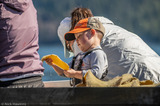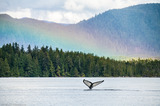
The film follows the timber industry from logging through to export.
- Subject:
- History
- Social Studies
- Material Type:
- Lesson
- Provider:
- BC History
- Provider Set:
- Premium Content
- Date Added:
- 08/15/2016

The film follows the timber industry from logging through to export.

Media Description | 5 minutes We're diving for data! With the help of an “eye in the sky” and some savvy scuba surveyors, researchers are estimating the number of herring in the water... by counting their eggs! But modern methods can only tell us so much. To get the full picture, we turn to the people who know the herring best. If you like this content you can see all of the available resources in the Harvest module in the Ocean School Help Centre (https://help.oceanschool.nfb.ca/educational-resources/module-guides/the-harvest-module-guide). >> Activity Description | 5 minutes'Herring census' - Stock assessment survey: Students are challenged to determine which herring stock will most likely have a healthy population in the future! Students perform a herring census using a simplified version of the methods used by scientists at Fisheries and Oceans Canada. An additional data sheet is available with this activity: https://docs.google.com/spreadsheets/d/1BRhtQ3t1PEN3wHJwtZTuELdVH3hnC56jjCCXEFBw95I/template/preview

>> Media Description | 5 minutes
For millennia, the Haíɫzaqv have depended on the seasonal cycles that bring ocean resources to the coast. Every generation learns to harvest in a sustainable way. But now these resources are dwindling. And it's up to us—all of us—to work together to put things back in balance. If you like this content you can see all of the available resources in the Harvest module in the Ocean School Help Centre (https://help.oceanschool.nfb.ca/educational-resources/module-guides/the-harvest-module-guide).
>> Activity Description | 45 minutes
Balancing act "c̓isḷa" comic activity. Students learn more about c̓isḷa—the act of looking after and taking care of something important. Students then create a comic that illustrates people taking care of and giving back to nature.
>>Get the activity
Here is a Google template link of the activity: https://docs.google.com/presentation/d/1RTA7LqU6EkCdlMngDHlQL4O6h5SVRtMYIKo8Or-6Fr4/template/preview
>> About the Indigenous content
This content was filmed and developed on unceded Haíɫzaqv homelands and waterways in direct collaboration with members of the Haíɫzaqv Nation. The Haíɫzaqv are an Indigenous Nation living in (what is currently) Canada's province of British Columbia (http://www.heiltsuknation.ca/about-2/territory/). We are sincerely grateful to the Haíɫzaqv Nation for allowing Ocean School to be guests in their territory, for sharing their stories and knowledge, and for collaborating with us for this module. All Haíɫzaqv language use in Ocean School content is overseen by the Heiltsuk Integrated Resource Management Department (https://www.hirmd.ca/).
>> About Ocean School
Ocean School is a free educational resource from the Canadian Government about the ocean, through Dalhousie University, Ingenium - Canada’s Museums of Science and Innovation, and the National Film Board of Canada. Ocean School is inquiry-based, entirely online, available in English and French, and for students in grades 5-9. Learn more about the Ocean School project at our What is Ocean School page.
>> Available in French
This same media is available in French here: https://www.youtube.com/watch?v=6MdRoCy8AZw
This same activity is available in French here (Google Template): https://docs.google.com/presentation/d/11XZeCZu0ICsb18DzBzUe1Kc-VcPYwMIZDm5mjf34nM8/template/preview
>> Accessibility
Captions and Transcripts are available for Ocean School content. Captions are within the Ocean School platform (or on YouTube) and transcripts can be found in the module guides: https://help.oceanschool.nfb.ca/educational-resources/module-guides
>> Please note: Ocean School activities are not stand-alone lessons (they do not cover all aspects of one topic or subject) but instead supplement learning through dynamic and engaging experiences.

Our Homes Are Bleeding - Digital Collection
The "Our Homes Are Bleeding" collection has grown out of the stories of cut-off lands in British Columbia. These stories are a part of the history of the reserve system in Canada, aboriginal title and rights and First Nations resistance to colonial assertion of land title.
The digital collection draws together several types of primary materials. The records of the McKenna McBride Royal Commission (1913 - 1916) include transcripts of testimonies given to the Commission, photographs and maps. Additional historical records, including maps, documents, newspaper articles, photographs, audio and video clips, show the continual assertion of aboriginal title and rights. Resource lists, narrative essays, a student webquest and teacher's resources have been developed to support the use of the collection.